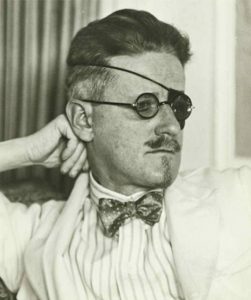
We can say that, due to their immoderation, eternity and infinity are half-brothers and half-sisters. And if infinity has given a lot of play in the hands of mathematicians, eternity has given no less in the hands of clergymen and priests. In his quasi-biographical novel, A Portrait of the Artist as a Young Man, James Joyce collected one of the most prodigious descriptions of the eternity of suffering that awaits those of us who have a place reserved in Hell. Joyce heard it from a priest on the occasion of a spiritual retreat he had the misfortune to attend. It so happened that shortly before attending, the then teenage Joyce had won a literary prize with which he had paid for a prostitute. Influential and sensitive as the young Joyce was, imagine the miserable state in which the following diatribe had to leave him: “Last and crowning torture of all the tortures of that awful place is the eternity of hell. Eternity! O, dread and dire word. Eternity! What mind of man can understand it? And remember, it is an eternity of pain. Even though the pains of hell were not so terrible as they are, yet they would become infinite, as they are destined to last for ever. But while they are everlasting they are at the same time, as you know, intolerably intense, unbearably extensive. To bear even the sting of an insect for all eternity would be a dreadful torment. What must it be, then, to bear the manifold tortures of hell for ever? For ever! For all eternity! Not for a year or for an age but for ever. Try to imagine the awful meaning of this. You have often seen the sand on the seashore. How fine are its tiny grains! And how many of those tiny little grains go to make up the small handful which a child grasps in its play. Now imagine a mountain of that sand, a million miles high, reaching from the earth to the farthest heavens, and a million miles broad, extending to remotest space, and a million miles in thickness: and imagine such an enormous mass of countless particles of sand multiplied as often as there are leaves in the forest, drops of water in the mighty ocean, feathers on birds, scales on fish, hairs on animals, atoms in the vast expanse of the air: and imagine that at the end of every million years a little bird came to that mountain and carried away in its beak a tiny grain of that sand. How many millions upon millions of centuries would pass before that bird had carried away even a square foot of that mountain, how many eons upon eons of ages before it had carried away all? Yet at the end of that immense stretch of time not even one instant of eternity could be said to have ended. At the end of all those billions and trillions of years eternity would have scarcely begun. And if that mountain rose again after it had been all carried away, and if the bird came again and carried it all away again grain by grain: and if it so rose and sank as many times as there are stars in the sky, atoms in the air, drops of water in the sea, leaves on the trees, feathers upon birds, scales upon fish, hairs upon animals, at the end of all those innumerable risings and sinkings of that immeasurably vast mountain not one single instant of eternity could be said to have ended; even then, at the end of such a period, after that eon of time the mere thought of which makes our very brain reel dizzily, eternity would scarcely have begun”.
As Woody Allen warned: “Eternity is awful long time, especially towards the end.”

Leave a Reply